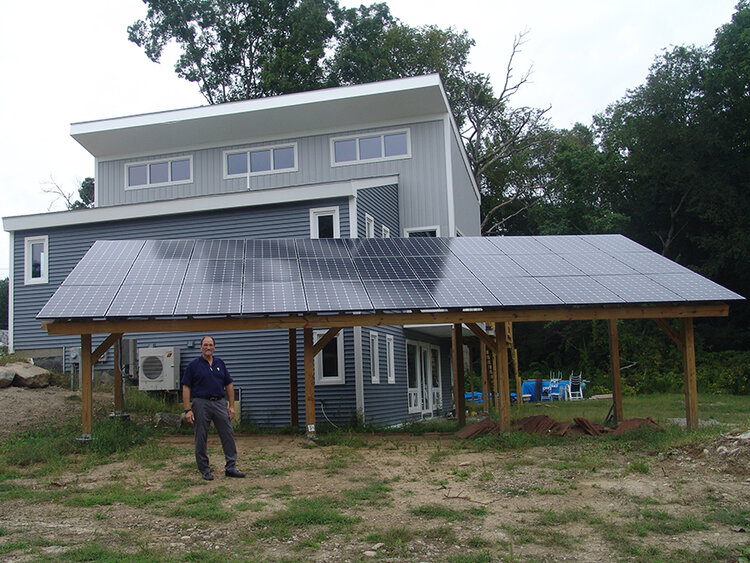New Study Outlines Ways Rhode Island Can Decarbonize
September 16, 2019
A new study shows Rhode Island’s greenhouse gas emissions are 45 percent higher than expected. The study also outlines a path to statewide decarbonization, showing that emissions can be reduced by as much as 80 percent during the next 10 to 20 years.
Rhode Island’s emissions are far higher than previously estimated, but the state can feasibly decarbonize its economy in just one or two decades using established technologies, according to the study from the Stockholm Environment Institute (SEI) and Brown University’s Climate and Development Lab.
Researchers recently presented the study to the state’s Executive Climate Change Coordinating Council. Brown University commissioned the study after the governor’s office indicated to researchers that it would be interested in deeper emission reduction targets, if their feasibility was demonstrated.
To estimate Rhode Island’s emissions, researchers built a model in SEI’s Long-range Energy Alternatives Planning (LEAP) system. They used the state’s 2016 Greenhouse Gas Emissions Reduction Plan as a starting point, and updated that emissions baseline using the latest science.
“The updated science on methane leakage from natural gas infrastructure changed the game dramatically. It showed that the state needs to quickly rethink its energy strategy,” said SEI senior scientist Jason Veysey, lead author of the study. “The good news is that the modeling also showed that with the right programs and policies, the state can be a leader and quickly make a transition off of fossil fuels.”
The study charts three pathways — to 2030, 2040, and 2050 — that would lead Rhode Island to deep decarbonization. All use established technologies, and all require the state to stop buying new fossil-fueled equipment. Steps include using modern heat pumps for heating and cooling, shifting to electric vehicles, and expanding offshore wind development.
“This study seeks scientific rigor on fundamental issues,” said study co-lead Timmons Roberts, professor at the Institute at Brown for Environment and Society. “The findings are clear and positive: the transition is feasible, with sharply cleaner air, locally produced electricity, and quality jobs. It’s a transition that a growing number of states and nations have seen is inevitable, affordable, and beneficial.”
Highlights of the study Deeper Decarbonization in the Ocean State include:
Rhode Island greenhouse gas emissions were 45 percent higher in 2017 than estimated in the state’s latest climate planning study, according to a new analysis in LEAP that considers a more realistic natural gas leakage rate and shorter time horizon.
Rhode Island can feasibly reduce its emissions by between 70 percent and 80 percent by 2030, 2040, or 2050.
Emissions can be wrung out of the state’s economy by focusing on electrifying transportation and heating, sharply improving efficiency, and investing in low-carbon power generation.
The study estimates total costs of transitioning away from fossil fuels in Rhode Island, considering costs for the electricity sector, transportation, buildings, and industry.
The study includes estimates of what public education and increased conservation efforts could achieve, and what their impact could be on the cost of the transition.
The study’s authors said more research is needed to understand the equity implications of the report’s findings, and to identify policies that address impacts of climate action and inaction on Rhode Island’s frontline communities and fossil fuel workers.
Categories
Join the Discussion
View CommentsRecent Comments
Leave a Reply
Your support keeps our reporters on the environmental beat.
Reader support is at the core of our nonprofit news model. Together, we can keep the environment in the headlines.
We use cookies to improve your experience and deliver personalized content. View Cookie Settings




Sounds great. But the cozy relationship between RI politicians and National Grid will put a stop to anything this report recommends. National Grid (British owned) is the worst utility company in the USA for commitment to fossil fuels going into future. And the cozy RI politicians have set the lowest target in the USA for reducing carbon emissions 35% by 2035. Pathetic.